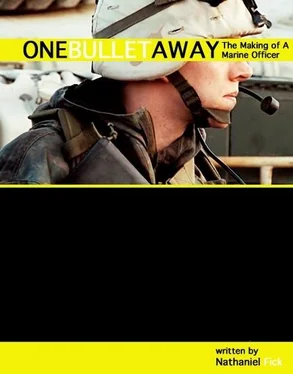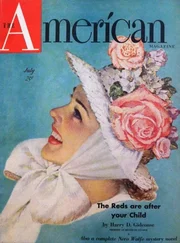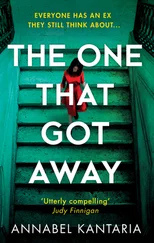After three years as a platoon commander, I was promoted to captain and chosen to become the commanding officer of the Basic Reconnaissance Course. There are a limited number of operational jobs in the Marine Corps, so my two combat deployments guaranteed me a tour behind a desk instead of an immediate return to Afghanistan or Iraq. When I’d started OCS in 1998, I’d considered making the Marines my career. After Afghanistan, the possibility had remained, only slightly diminished. After Iraq, I knew I had to leave.
Most people in my life acted as if getting out was a natural choice for me. When I’d accepted my commission, friends and relatives had asked questions such as “Last time we talked, you were at Dartmouth. What happened?” or “Do Marines get paid?” An acquaintance felt the need to console my parents, saying, “You must be so disappointed.” These people now thought that I was correcting an earlier mistake, or perhaps that I’d satisfied my adolescent bravado. They thought that the job’s practical hardships had driven me out — long deployments, frequent moves, low pay, and danger. But they were wrong. For me, the intangible honor and pride of being a Marine officer outweighed all the adversity.
Some of my buddies in the Corps understood that the decision was more personal. They knew that I chafed under a hierarchy that sometimes valued polished boots more than tactical competence in its leaders. They figured that we had done in four years what a previous generation of Marines had done in twenty, or maybe never. Promotion, as an officer, means more paperwork and less time with the troops. They knew that I had joined the Marines to hold a sword, not a pencil. They were right, but the real reason was even deeper.
I left the Corps because I had become a reluctant warrior. Many Marines reminded me of gladiators. They had that mysterious quality that allows some men to strap on greaves and a breastplate and wade into the gore. I respected, admired, and emulated them, but I could never be like them. I could kill when killing was called for, and I got hooked on the rush of combat as much as any man did. But I couldn’t make the conscious choice to put myself in that position again and again throughout my professional life. Great Marine commanders, like all great warriors, are able to kill that which they love most — their men. It’s a fundamental law of warfare. Twice I had cheated it. I couldn’t tempt fate again.
The battalion traditionally held a sendoff ceremony called a “Hail & Farewell” for its departing officers. Major Benelli scheduled mine for a Friday afternoon when he knew I wouldn’t be in town. It was a snub, but not one that stung, since my allegiance wasn’t to the battalion; it was to the platoon.
Recon platoons are steeped in tradition, and one of the finest is the paddle party. Mine was held at Mike Wynn’s house on a Friday night in August. The whole platoon was there. They put me in a chair in the center of the room and gathered around. The ceremony’s roots stretch back to Viking warships. According to tradition, when a warrior left the crew to settle down and start a family, his comrades presented him with his oar as a symbol of the contribution he had made and of their own collective weakening after his departure.
The youngest Marine, Lance Corporal Christeson, held the paddle first. Gunny Wynn and I had recommended him for combat meritorious promotion from private first class to lance corporal, one of the first since the Vietnam War. The paddle passed from his hands through the whole platoon, moving in order of seniority, with each man telling a story as he held it. “Lower, Christeson. You’re shooting too high.” Rushing to the landing zone at Bridgeport. Task Force Sword. Ambush Alley. Espera and the ever-present cigar. Lasers in Muwaffiqiya. Horsehead. Sydney. Boat raids. “Take the shot.” The paddle passed from Gunny Wynn, the senior Marine in the platoon, to Sergeant Patrick, the man who had made it. Patrick turned the paddle around, showing it to me for the first time.
He had carved it from a four-foot block of cherry. Green, tan, and black parachute cord wrapped the handle. My captain’s bars, jump wings, and ribbons adorned the blade. On the back, Rudy had inked First Recon’s insignia and attached a photo of the platoon in the Kuwaiti desert on the eve of the war.
I reached out to touch it and sensed another crease in history. When my hand closed around the parachute cord, my command of the platoon ended. In their words, I was promoted from captain to mister. In mine, the most meaningful year of my life was over.
A few mornings later, I drove to work for my last day. It was a foggy, cool Southern California morning. In the parking lot, I saw my replacement, a red-haired captain named Brent Morel. We had gone to lunch together the day before and sat for two hours as I tried to put the platoon into words — Colbert’s cool demeanor, Rudy’s enthusiasm, Jacks’s mastery of the Mark-19, Patrick’s southern aphorisms. The war in Iraq hadn’t ended, and I wanted Morel to know the men when he took them back for their second tour.
“Mornin’, Brent.”
He looked up from the waterproof bag he was sealing. “Hi, Nate. We’re heading down to the beach for a fin.”
“Everybody?”
“Whole platoon. Wanna come?” It was a gracious offer, but I couldn’t accept it.
“They’re yours now, man. Have a good one.”
In the office, I collected all my gear, cleaning each piece and stuffing it into my rucksack to return to the supply warehouse. I held my rifle, thinking of Al Gharraf and the dead fedayeen. Putting my hand around the grip of my pistol, I was back at the bridge in Muwaffiqiya with tracers slicing through the dark. Brown bloodstains still mottled my flight gloves, but I shoved them into the ruck. I tried for a moment to beat Iraq’s dust from its canvas but gave up. This pack would probably be retired anyway. A piece of shrapnel had torn through its outer pockets and ripped away all the snaps.
At the warehouse, I waited in a line of Marines turning in their gear. Some were heading to new assignments, others getting out. All were quiet. Near the opposite doorway stood a group of second lieutenants, new guys with fresh haircuts. They joked and laughed, pretending not to see us. I wanted to gather them up and tell them what my father had told me as a new Marine: “Stand tall, but come home physically and psychologically intact.” I knew they would clasp their hands behind them, listen respectfully, and then laugh behind the back of the crazy captain who’d forgotten that Marine lieutenants are invincible. So I walked to my car and drove home instead. They would figure it out for themselves.
A few months later, I was working in Washington, D.C., and the platoon was back in Iraq. I drove down to Virginia Beach on a Thursday morning in April to pin a Bronze Star on Shawn Patrick’s chest. He had recovered from his wound and was an instructor at the Amphibious Reconnaissance School, training new recon Marines. As I passed Quantico on I-95, I listened to the national security advisor testifying before the 9/11 Commission. The symbolism struck me — passing the place where I had begun my Marine Corps career, listening to a debate over the event that had launched me into two years of combat, traveling to a ceremony to close a chapter of the story.
The phone rang. It was Cara Wynn, Mike’s wife. She was breathless, speaking so fast that I could barely understand her.
“The platoon was ambushed in Fallujah. A bunch of guys were hit and flown to Germany. That’s all I know right now.”
While on patrol, Bravo Company had hit a sophisticated combined-arms ambush. A group of insurgents had opened fire on the convoy from behind a berm next to the road. An RPG had exploded inside the lead Humvee. One Marine had lost both his hands, and four others had been wounded. The platoon had attacked the ambushers’ position, killing dozens of them.
Читать дальше












